A farmer in Argentina has uncovered the preserved shells of four giant ‘ancient armadillo’ creatures called Glyptodonts that roamed the earth around 20,000 years ago.
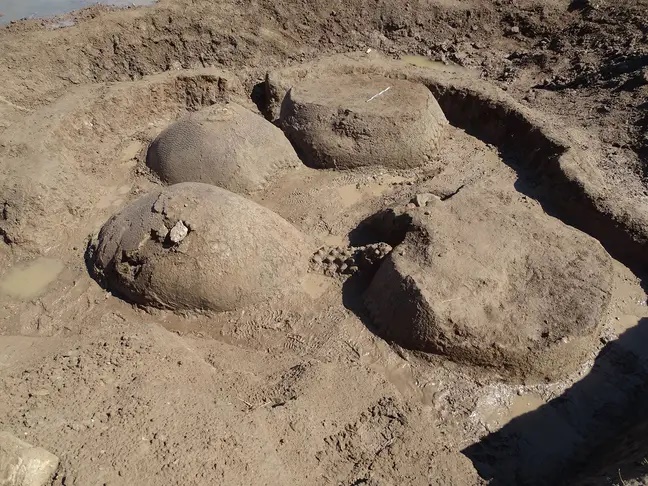
The largest of the shells is about the size of a Volkswagen Beetle.
The shells were discovered in a dried-out riverbed near the Argentine capital of Buenos Aires and then investigated by the Institute of Archaeological and Palaeontological Investigations of the Pampa Quaternary. Catchy title, eh?
Scientists from the institute will now spend the next week digging out the shells to get a better look at them and find out as much as possible.
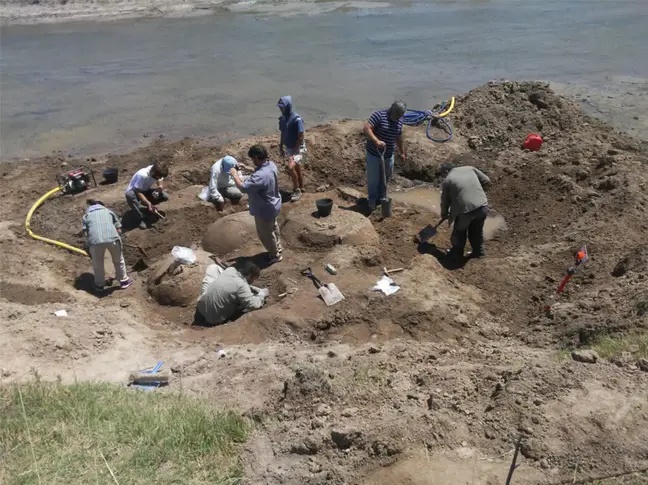
Pablo Messineo, one of the archaeologists, said the strange discovery was made by Juan de Dios Sota, a farmer who was taking his cows out for a graze when he spotted the shapes of the shells.
He quickly established that they weren’t any ordinary animal, and alerted the scientists, who arrived in short order.
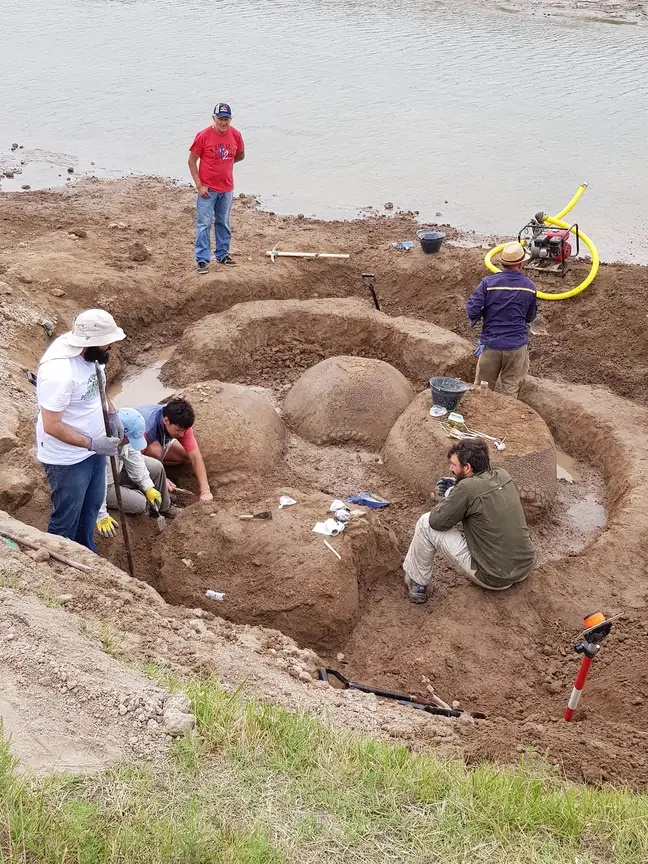
Messineo explained: “We went there expecting to find two glyptodonts when the excavation started and then two more were found!
“It is the first time there have been four animals like this in the same site. Most of them were facing the same direction, like they were walking towards something.”
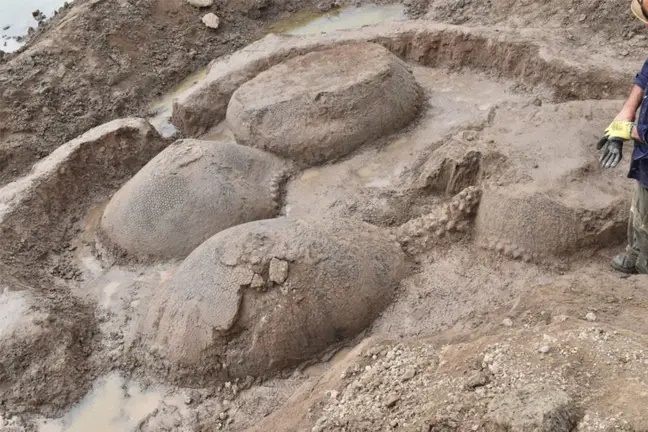
These four appear to be a group comprising two adults and two young animals.
Tests will be performed to attempt to establish how old they are, what sex they were, and – potentially – how they died.
At this stage, it is believed they are roughly 20,000 years old.
They’ll have to be extracted using a digger, because the shells are so heavy.
This isn’t the first time in recent years that Glyptodont shells have been turned up unexpectedly in Argentina.
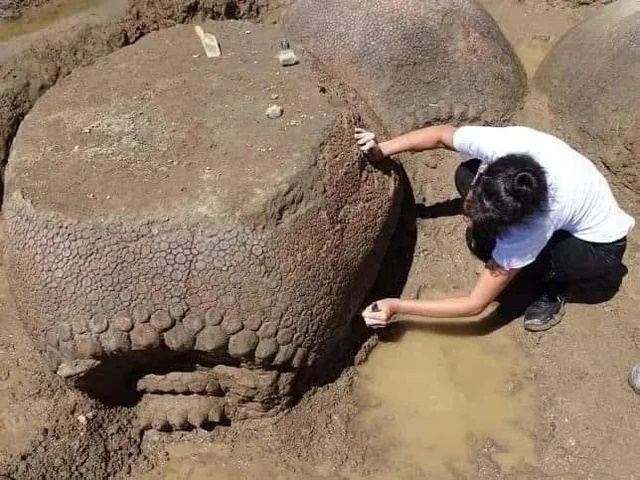
Another shell belonging to one of the long-extinct mammals was discovered in Argentina in October last year, as well as yet another four years ago.
Despite those recent discoveries, these shells remarkably rare. Near complete shells – or carapaces as they’re known – are not found very often.
So, what exactly were Glyptodonts?
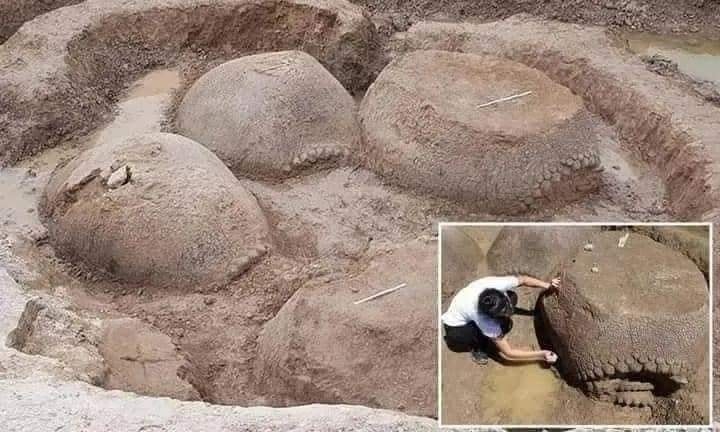
Well, they were like gigantic armadillos that were, at one stage, found all across Latin America, having developed about 20 million years ago.
Much like their descendants these days, they possessed a large, tough shell that protected them from all sorts of dangers.
The use of the word ‘gigantic’ in this case isn’t an exaggeration.
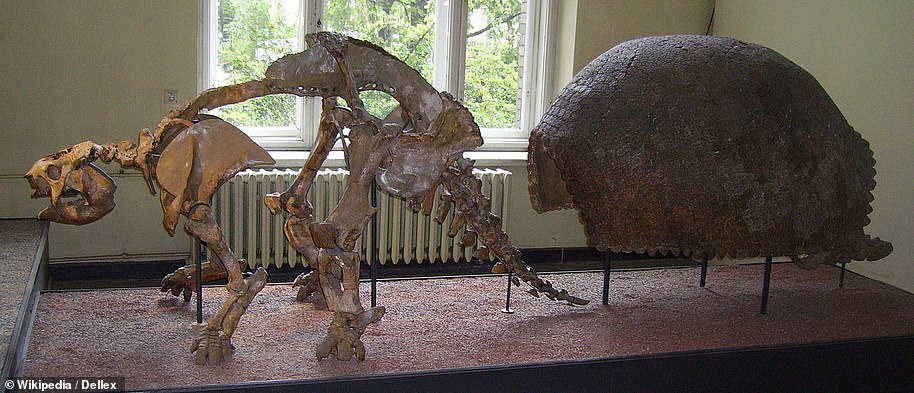
Glyptodonts could grow to around the size of a car, reaching as much as 10 feet long.
Imagine a 10-foot-long armadillo. It’s a damn shame they no longer exist, because they sound absolutely badass.
Fear not, though. The creatures were gentle giants, and were completely herbivorous.
Unfortunately, it is thought that they bit the dust at the start of the last ice age.
Their shells were made of bone and could weigh as much as 1,100lbs (500kg), which is about 20 percent of their overall body weight.
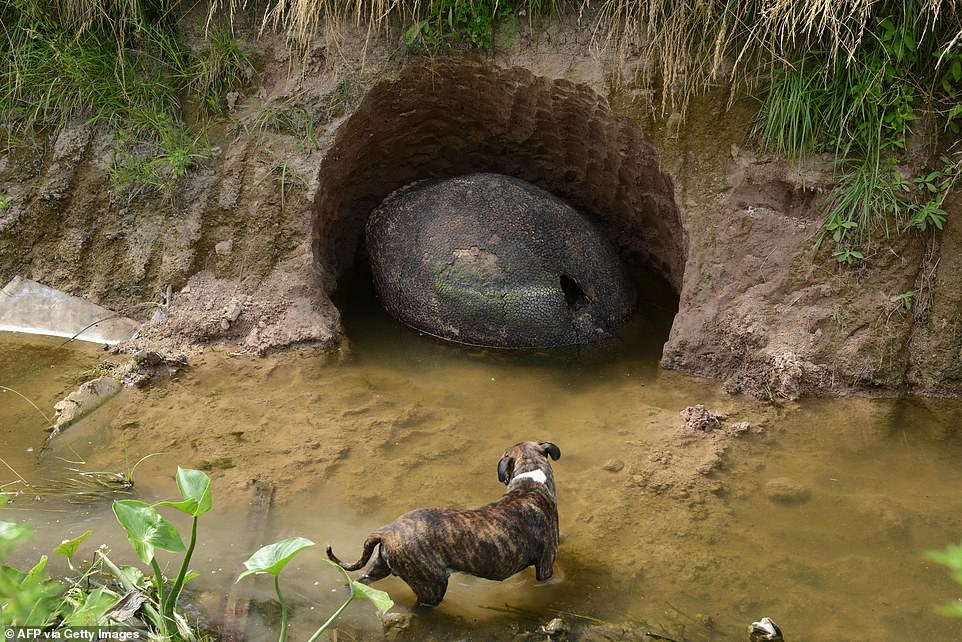
.
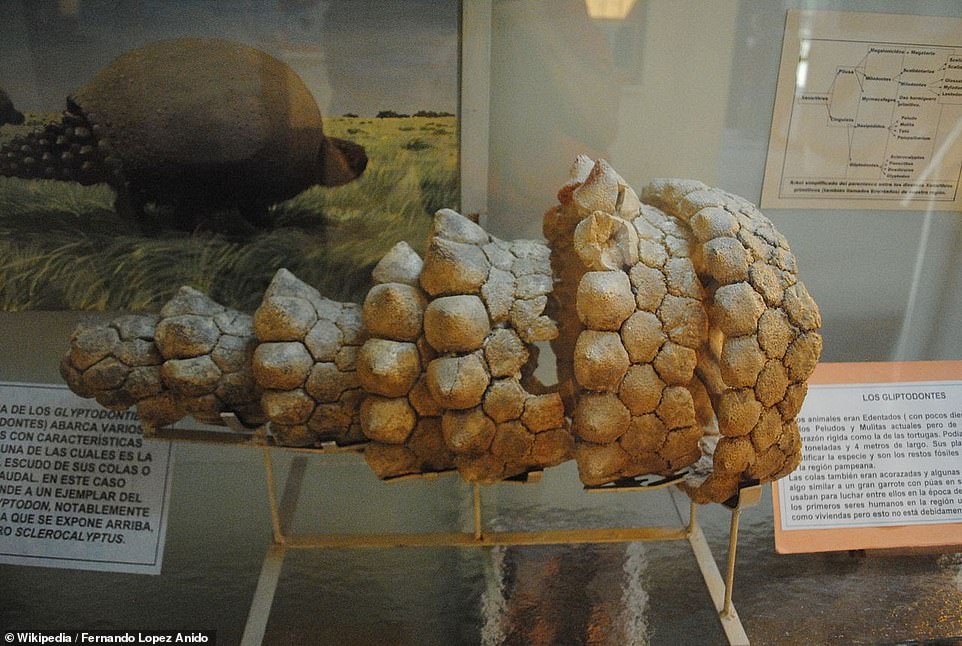
.
Nature